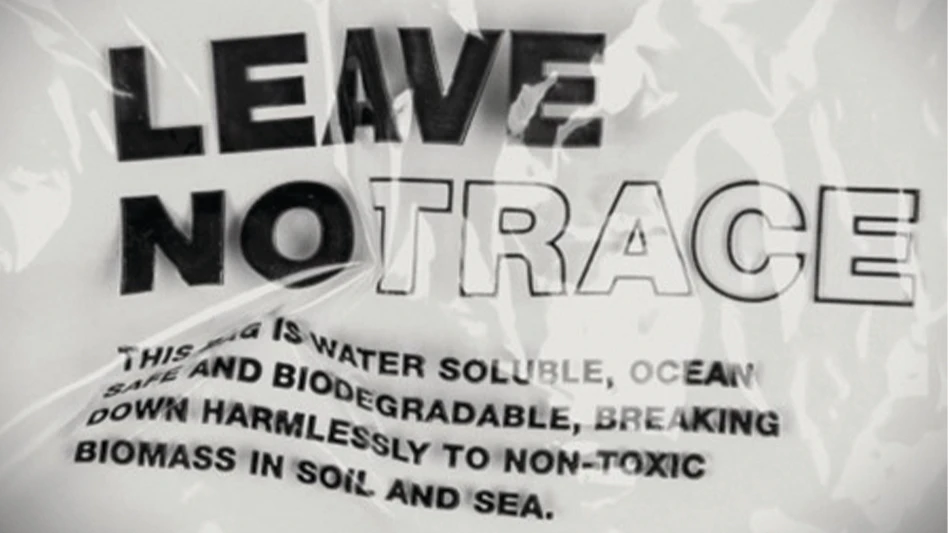
Image courtesy of Aquapak Polymers Ltd.
A recently released study by United Kingdom-based biodegradable polymer developer Aquapak Polymers Ltd. claims 49 percent of respondents in the fashion industry believe sustainability is highly important to the success of their business.
Conducted by PureProfile in November 2023, the study gained insights from 100 board directors and senior executives who work for fashion brands and retailers in the United Kingdom, United States and Australia. The research reveals that 12 percent of respondents expect their business to be fully circular within one to two years, 34 percent within two to three years and 31 percent within three to four years. One-fifth of respondents expect to reach this goal in four to five years.
RELATED: Aquapak, University of Birmingham partner to address end-of-life plastic
Per the report, almost one-third (32 percent) rated their strategy for making their business fully circular as excellent, over half (54 percent) said it was good and 14 percent described it as “average,” suggesting there was room for improvement.
When it comes to sustainability leadership, 54 percent of respondents described their business as a market leader and innovator, 39 percent said their business was average and “following the leaders,” and 7 percent describe their business as “playing catch-up.”
While 49 percent of those surveyed said sustainability is regarded as highly important to the success of their business, just 21 percent said the quality of effectiveness of their sustainability strategy and program was excellent.
According to Aquapak, 37 percent of respondents said reducing the use of polyethylene plastic in packaging is a highly important part of their sustainability strategy, and 63 percent said it was quite important.
To help reduce plastic packaging pollution, Aquapak has developed Hydropol, a polymer that can be used as a plastic alternative in a wide variety of applications while remaining soluble and nontoxic to marine life. The company says Hydropol currently is used to make products such as garment bags, offering strength and puncture resistance, clarity of film and protection from leakages and dirt—similar to traditional polybags.
The company claims Hydropol garment bags can be disposed of in existing domestic waste streams without contaminating other recyclable products or can be dissolved immediately in hot water at home without producing microplastics.
“Our study shows that the circular economy and sustainability are priorities for boards and senior executives in the fashion industry, although only half think that their business is at the vanguard of change when it comes to innovation and market leadership,” Aquapak CEO Mark Lapping says. “There has been an acceleration in new technologies in the sector, so the opportunity for brands to step up and lead the industry is there for the taking.
“Aquapak is already working with several early-adopter fashion companies who are determined to drive a significant change in the industry by embracing upstream innovation in packaging. These businesses are proof that new materials work and can make the difference that consumers are now demanding to see from fashion brands.”
Latest from Recycling Today
- BMW Group, Encory launch 'direct recycling’ of batteries
- Loom Carbon, RTI International partner to scale textile recycling technology
- Goodwill Industries of West Michigan, American Glass Mosaics partner to divert glass from landfill
- CARI forms federal advocacy partnership
- Monthly packaging papers shipments down in November
- STEEL Act aims to enhance trade enforcement to prevent dumping of steel in the US
- San Francisco schools introduce compostable lunch trays
- Aduro graduates from Shell GameChanger program





